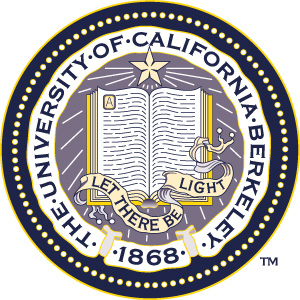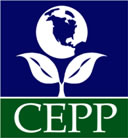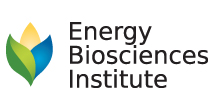
Conference on Intellectual Property Rights
and Technology Transfer
in the U.N. Climate Negotiations
October 26-27, 2009
University of California, Berkeley

Center for Environmental Public Policy
With:


Presenters
Monday, October 26 – U.N. negotiations deadlock on tech transfer and IPR |
|
8:30 |
Continental breakfast and registration |
9:00 |
Welcome and overview, Blas Perez Henriquez, director, Center for Environmental Public Policy. |
9:10 |
Welcome, Gary Baldwin, director of special projects, CITRIS. |
9:15 |
Session 1 – Overview of tech transfer and IPR in the U.N. climate negotiations. Discussion of latest diplomatic maneuverings in UNFCCC preparatory talks, and the outlook for the December summit in Copenhagen. Points of agreement and disagreement between clean tech industry, G77 nations, and scientific researchers.
Speakers – George Romanik, chief IP counsel, Pratt & Whitney; Victor Menotti, executive director, International Forum on Globalization; Josephine Mutugu, researcher, Energy Biosciences Institute, UC Berkeley. |
11:00 |
Break |
11:15 |
Session 2 – Lessons learned, pro and con, from existing policies, mandates and R&D collaboratives: Compulsory licensing in WTO-Doha agreement on essential medicines, U.S. domestic legislation, and the Consultative Group on International Agricultural Research.
Speakers – Eric Walters; partner, Morrison & Foerster (Palo Alto); Mei Gechlik, lecturer, Stanford Law School; Allan Bennett, executive director, and Sara Boettiger, director of strategic planning and development, Public Intellectual Property Resource for Agriculture, UC Davis. |
1:00 |
LUNCH |
2:00 |
Session 3 – The role of R&D, private and public, in clean tech deployment in developing nations. Which sectors of private R&D have cost barriers to deployment and which sectors have little or no such barriers? What is the role of basic public R&D in the clean tech industry – what are the unfulfilled R&D functions that are not filled by the private sector and need to be filled by public research institutions, currently and in the future?
Speakers – Viviana Wolinsky, licensing manager, Lawrence Berkeley National Laboratory; Sara Boettiger, director of strategic planning and development, Public Intellectual Property Resource for Agriculture, UC Davis. |
3:30 |
Break |
3:45 |
Session 4 – Sectoral breakout workshops focused on individual industries. The four topics are: next-generation biofuels; solar (thin film, concentrated thermal, energy storage); power sector (generation, smart grids, smart metering); and buildings energy efficiency. The workshop sessions will examine the role of IPR in the deployment of these technologies in developing nations, the impact of proposals being debated in the U.N. climate talks, and the current and potential role of private and public R&D. |
Tuesday, October 27 – Solutions to the deadlock |
|
8:30 |
Continental breakfast and registration |
9:00 |
Session 5 – An evaluation of the potential benefits and risks of a new climate treaty for the clean tech industry in developed and developing nations alike. Speakers will evaluate the perspective of venture capital firms and other sources of clean-tech capital, and the need to protect the innovation process in developed and developing nations alike. What are the clean-tech industry’s needs? What are its red lines? Where are its strategic opportunities?
Speakers – Josh Green, partner, Mohr Davidow Ventures; Tessa Schwartz, co-chair of Clean Tech Group, Morrison & Foerster (San Francisco); Chris King, chief strategy officer, eMeter; George Romanik, chief IP counsel, Pratt & Whitney; Julio Friedmann, leader, Carbon Management Program, Lawrence Livermore National Laboratory. |
10:45 |
Break |
11:00 |
Session 6 – Green tech for the poorest. Much of the tech-transfer climate debate has been focused on large developing nations such as China and Brazil, while less attention has been given to the least developed, nonindustrialized nations whose emissions are nonetheless growing fast. Attention is needed for “orphan” areas of research with few developed-market incentives for innovation, such as drought-resistant African crops and small-scale desalination. Which emissions-reducing technologies are most needed by the poorest nations?
Speakers – Wendy Neal, vice president and chief legal officer, Arcadia Biosciences; Ashok Gadgil, deputy director, Environmental Energy Technologies Division, Lawrence Berkeley National Laboratory; Josephine Mutugu, researcher, Energy Biosciences Institute, UC Berkeley. |
12:30 |
LUNCH |
1:15 |
Keynote – Paul Alivisatos, director, Lawrence Berkeley National Laboratory |
2:15 |
Session 7 – Sectoral breakouts (continuation from previous day). |
3:30 |
Session 8 – Report back from sectoral breakouts. |
4:00 |
Session 9 – The road ahead. We will explore potential solutions to the stalemate over IPR. How best can RD&D of clean tech be stimulated in ways that protect innovation but also address developing nations’ concerns? Discussion will include proposals such as the creation of a multilateral network of government-sponsored clean-tech RD&D centers, analogous to the international crop research center network of the Consultative Group on International Agricultural Research.
Speakers – Yang Fuqiang, director of global climate initiative, WWF International; Mario Duarte, Ministry of the Environment and Natural Resources (SEMARNAT), Mexico; John Zysman, co-director of Berkeley Roundtable on the International Economy and professor of Political Science, UC Berkeley. |